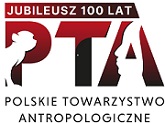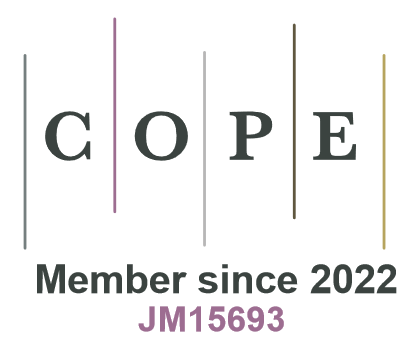Association of menopausal symptoms with obesity in Slovak women
DOI:
https://doi.org/10.2478/anre-2014-0005Keywords:
physiological symptoms, psychological symptoms, menopause, body mass index, waist to hip ratioAbstract
A lot of midlife women experience a great deal of menopausal symptoms. Their frequency within a given population may vary and depend on several factors such as age, menopausal status, health factors, including obesity.
This study aims to investigate the incidence of menopausal symptoms among obese and non-obese midlife women, and to evaluate contribution of obesity as predisposing factor for menopausal symptoms to their manifestation.
The studied cohort consisted of 297 women ranging from 39 to 59 years of age. Among them there were 63 women with obesity (body mass index, BMI ≥ 30.0 kg/m2) and of 39 women with abdominal obesity (waist to hip ratio, WHR>0.89). Women were recruited from the western and middle parts of Slovakia. All participants completed a menopause-specific questionnaire. Anthropometric measurements were taken using the standard anthropometric techniques. All statistical computations were performed by the SPSS 17.0 software programme (SPSS Inc., Chicago, IL).
Stepwise logistic regression analysis demonstrated that increase in facial hair was influenced by age (p<0.001) and obesity (p=0.015). Low backache was influenced by WHR (p=0.031), obesity (p=0.008) and cardiovascular disease (p=0.024). The significant impact of BMI was recorded on the involuntary urination (p=0.002). The menopausal symptom „more clumsy then usual“ was influenced by marital status (p=0.044), hypertension (p=0.021) and the presence of cardiovascular disease (p=0.023). We investigated the effect of menopausal status (p=0.010) and abdominal obesity (p=0.035) on the loss of sexual interest. Herein we present evidence that obesity could be involved in menopausal symptomatology among Slovak midlife women. We demonstrate that obese women have a higher susceptibility to increase in facial hair and backache, and women with abdominal obesity to loss of sexual interest.
Downloads
References
Barth HJ, Catalan J, Cherry AC, Day A. 1993. Psychological morbidity in women referred for treatment of hirsutism. J Psychomatic Research 37:615–19.
View in Google Scholar
Bray AG. 1997. Obesity and reproduction. Hum Reprod 12:26–32.
View in Google Scholar
Burger GH, Dudley CE, Robertson MD, Dennerstein L. 2002. Hormonal changes in the menopause transition. Endocr Rev 57:1257–75.
View in Google Scholar
Chedraui P, Hidalgo L, Chavez D, Morocho N, Alvarado M, Huc A. 2007. Menopausal symptoms and associated risk factors among postmenopausal women screened for the metabolic syndrome. Arch Gynecol Obstet 275:161–68.
View in Google Scholar
Chiechi LM, Ferreri R, Granieri M, Bianco G, Berardesca C, Loizzi P. 1997. Climacteric syndrome and body weight. Clin Exp Obstet Gynecol 24:163–66.
View in Google Scholar
Daley A, MacArthur C, Stokes-Lampard H, McManus R, Wilson S, Mutrie N. 2007. Exercise participation, body mass index, and health-related quality of life in women of menopausal age. British J General Practice 57:130–5.
View in Google Scholar
De Lancey JO. 1990. Anatomy and physiology of urinary continence. Clin Obstet Gynecol 33:298 –307.
View in Google Scholar
Den Tonkelaar I, Seidell JC, van Noord PA. 1996. Obesity and fat distribution in relation to hot flashes in Dutch women from the DOM-project. Maturitas 23:301–05.
View in Google Scholar
Esposito K, Ciotola M, Giugliano F, et al. 2007. Association of body weight with sexual function in women. Int J Impot Res 19:353–57.
View in Google Scholar
Fernández-Alonso AM, Cuadros JL, Chedraui P, Mendoza M, Cuadros AM, Pérez-López FR. 2010. Obesity is related to increased menopausal symptoms among Spanish women. Menopause 16:105–10.
View in Google Scholar
Freedman RR. 2002. Core body temperature variation in symptomatic and asymptomatic postmenopausal women: brief report. Menopause 9:399–401.
View in Google Scholar
Freeman EW, Sammel MD, Grisos JA, Battistini M, Garcia-Espagna B, Hollander L. 2001. Hot flashes in the late reproductive years: risk factors for African American and Caucasian women. J Womens Health Gend Based Med 10:67–76.
View in Google Scholar
Gallichio L, Visvanathan K, Miller SR, Babus J, Lewis ML, Zacur H, Flaws AJ. 2005. Body mass, estrogen levels, and hot flashes in midlife women. Am J Obstet Gynecol 193:1353–60.
View in Google Scholar
Gast MG, Samsioe NG, Grobbeea ED, Nilsson MP, van der Schouw TY. 2010. Vasomotor symptoms, estradiol levels and cardiovascular risk profile in women. Maturitas 66:285–90.
View in Google Scholar
Gianna P, Vanuska S, Luana G, Carlo V. 2009. Body mass index, urinary incontinence, and female sexual dysfunction: how they affect female postmenopausal health. Menopause 16:1188–92.
View in Google Scholar
Glickman-Weiss EL, Nelson AG, Hearon CM, Prisby R, Caine N. 1999. Thermal and metabolic responses of women with high fat versus low fat body composition during exposure to 5 and 27 degrees C for 120 min. Aviat Space Environ Med 70:284 –88.
View in Google Scholar
Gold EB, Sterbfeld B, Kelsey JL, Brown C, Mouton C, Reame N, Salamone L, Stellato R. 2000. Relation of demographic and lifestyle factors to symptoms in a multiracial/ ethnic population of women 40–55 years of age. Am J Epidemiol 152:463–73.
View in Google Scholar
Gold EB, Block G, Crawford S, Lachance L, FitzGerald G, Miracle H, Sherman S. 2004. Lifestyle and demographic factors in relation to vasomotor symptoms: baseline results from the Study of Women’s Health Across the Nation. Am J Epidemiol 159:1189 –99.
View in Google Scholar
Greendale AG, Gold BE. 2005. Lifestyle factors: are they related to vasomotor symptoms and do they modify the effectiveness or side effects of hormone therapy? American J Medicine 118:148–54.
View in Google Scholar
Hannestad SY, Rortveit G, Daltveit AK, Hunskaar S. 2003. Are smoking and other lifestyle factors associated with female urinary incontinence? The Norwegian EPINCONT Study. Int J Obstet Gynaecol 110:247–54.
View in Google Scholar
Hunskaar S. 2008. A systematic review of overweight and obesity as risk factors and targets for clinical intervention for urinary incontinence in women. Neurourol Urodynam 27:749–57.
View in Google Scholar
Kaczmarek M. 2005. Intra-population age variation at natural menopause and underlying past reproductive events: a case of Polish women. Acta Med Lituanica 12:15–21.
View in Google Scholar
Kolotkin R, Binks M, Crosby R, Ostbye T, Gress R, Adams T. 2006. Obesity and sexual quality of life. Obesity 14:472–9.
View in Google Scholar
Kershaw EE, Flier SJ. 2004. Adipose tissue as an endocrine organ. J Clin Endocrinol Metab 89:2548–56.
View in Google Scholar
Li C, Borgfeldt C, Samsioe, G Lidfeldt, Nerbrand Ch. 2005. Background factors influencing somatic and psychological symptoms in middle-age women with different hormonal status: a population-based study of Swedish women. Maturitas 52:306–18.
View in Google Scholar
Llaneza P, Inarrea J, Gonzalez C, Alonso A, Arnott I, Ferrer-Barriendos J. 2007. Differences in health related quality of life in a sample of Spanish menopausal women with and without obesity. Maturitas 58:387–94.
View in Google Scholar
Mirzaiinjmabadi K, Anderson D, Barnes M. 2006. The relationship between exercise, body mass index and menopausal symptoms in midlife Australian women. Int J Nursing Practice 12:28–34.
View in Google Scholar
Ozerdoğan N, Beji NK, Yalçin O. 2004. Urinary incontinence: its prevalence, risk factors and effects on the quality of life of women living in a region of Turkey. Gynecol Obstet Invest 58:145–50.
View in Google Scholar
Pastore ML, Carter AR, Hulka SB, Wells E. 2004. Self-reported urogenital symptoms in postmenopausal women: Women’s Health Initiative. Maturitas 49:292–303.
View in Google Scholar
Pérez MAJ, Garcia CF, Palacios S, Pérez M. 2009. Epidemiology of risk factors and symptoms associated with menopause in Spanish women. Maturitas 62:30–36.
View in Google Scholar
Ruutiainen K, Erkkola R, Grönroos MA, Irjala K. 1988. Influence of body mass index and age on the grade of hair growth in hirsute women of reproductive ages. Fertil Steril 50:260–65.
View in Google Scholar
Sherburn M, Guthrie RJ, Dudley CE, O’Connell EH, Dennerstein L. 2001. Is incontinence associated with menopause? Obstet Gynecol 98:628–33.
View in Google Scholar
Whiteman MK, Staropoli CA, Langenberg PW, McCarter RJ, Kjeru KH, Flaws JA. 2003. Smoking, body mass, and hot flashes in midlife women. Obstet Gynecol 101:264–72.
View in Google Scholar
Wilbur J, Miller AM, Montgomery A, Chandler P. 1998. Sociodemographic characteristics, biological factors, and symptom reporting in midlife women. Menopause 5:43–51.
View in Google Scholar
Wilbur J, Dan A, Hedricks C, Holm K. 1990. The relationship among menopausal status, menopausal symptoms, and physical activity in midlife women. Fam Community Health 13:67–78.
View in Google Scholar
World Health Organization. 1996. Research on the Menopause in the 1990’s. Report of a WHO Scientific Group, Geneva. WHO Technical report Series No. 866.
View in Google Scholar
Downloads
Published
How to Cite
Issue
Section
License

This work is licensed under a Creative Commons Attribution-NonCommercial-NoDerivatives 4.0 International License.








